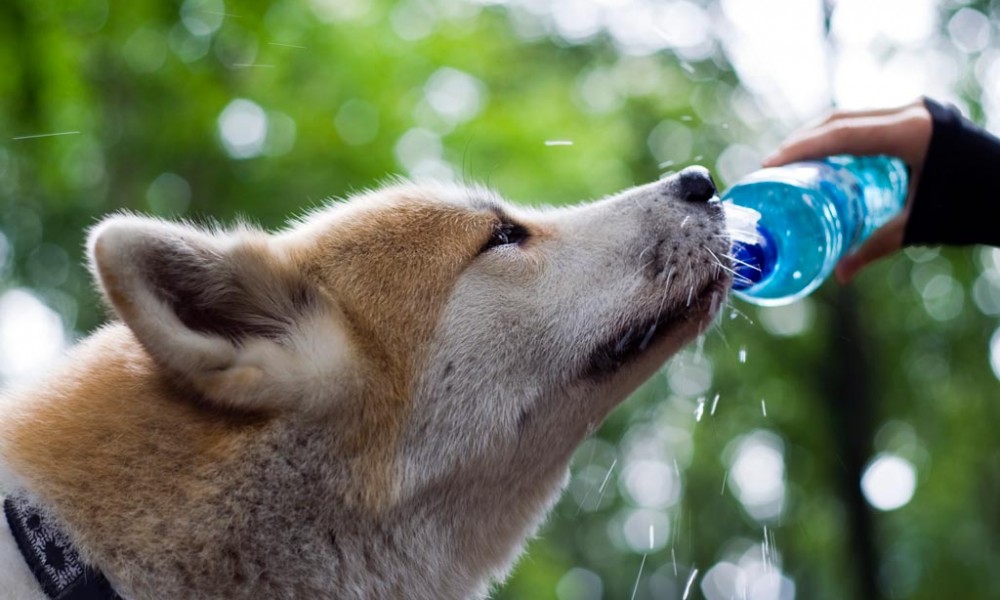Hot weather causes concern for pet owners.
Summer has officially begun and the Humane Society of Utah wants to remind pet owners of some hot weather tips to protect their furry loved ones. Most people will be spending time outdoors with their pets and it is important to remember the following special concerns. The Humane Society of Utah strongly urges all pet owners to use microchips and identification tags, keep contact information current, and to spay and neuter their pets.
- Never leave an animal in a parked vehicle. If the outside temperature is over 65 degrees, the temperature inside a vehicle can become fatal within minutes, even when parked in the shade and with the windows open.
- When the temperature is high, be aware that sensitive paw pads can burn on hot asphalt. Walk your dog in the cooler hours of the early morning or late evening.
- Trim longer hair but never shave your dog. Layers of a dogs’ coat protect them from overheating and sunburn. Brush dogs and cats more often and make sure any sunscreen or insect repellent used on your pets is labeled specifically for use on animals.
- Stay hydrated. Pets can get dehydrated quickly when it is hot outdoors. Make sure to have plenty of fresh cool water available.
- Keep your pet cool inside and out. Remember that pets respond differently to heat and humidity than humans do and fans don’t cool off pets as effectively as they do people. Try homemade frozen treats, ice cubes, a cooling soak or cold rag around the neck, plenty of shade, avoid over exercising, and keep them indoors when temperatures are extremely high.
- Recognize signs and symptoms of overheating. These may include excessive panting or difficulty breathing, increased heart and respiratory rate, drooling, dry gums, refusal to eat, mild weakness, excessive thirst, lethargy, vomiting, seizures and unconsciousness. Pets that are young, elderly, overweight, have short muzzles, or have heart or lung disease should be kept in air-conditioned rooms as much as possible. If you suspect heatstroke, get to the vet ASAP.
- Visit your veterinarian to test for heartworm and other parasites. Ask about tick control recommendations.
- Do not leave pets unsupervised around water. Not all dogs are good swimmers; make sure they wear flotation devices when on boats. Rinse your dog off after swimming to remove chlorine or salt from his fur and try to keep your dog from drinking pool water which contains chemicals that could cause stomach upset.
- Prevent falls from unscreened windows, doors, porches, patios and decks.
- Avoid chemicals. Commonly used flea and tick products, mouse and rat baits, antifreeze, lawn and garden insecticides can be harmful to cats and dogs if ingested. Keep citronella candles, oil products and insect coils out of pets’ reach. Call your veterinarian if you suspect your pet as ingested a poisonous substance.
- Remember that food and drink offered to guests at a backyard barbecue or party may be poisonous to pets. Keep alcoholic beverages away from pets; avoid raisins, grapes, onions, garlic and chocolate. An overlooked toothpick, skewer or bone can cause severe damage to their GI system. Any change in diet may give your cat or dog severe digestive ailments.





No comments